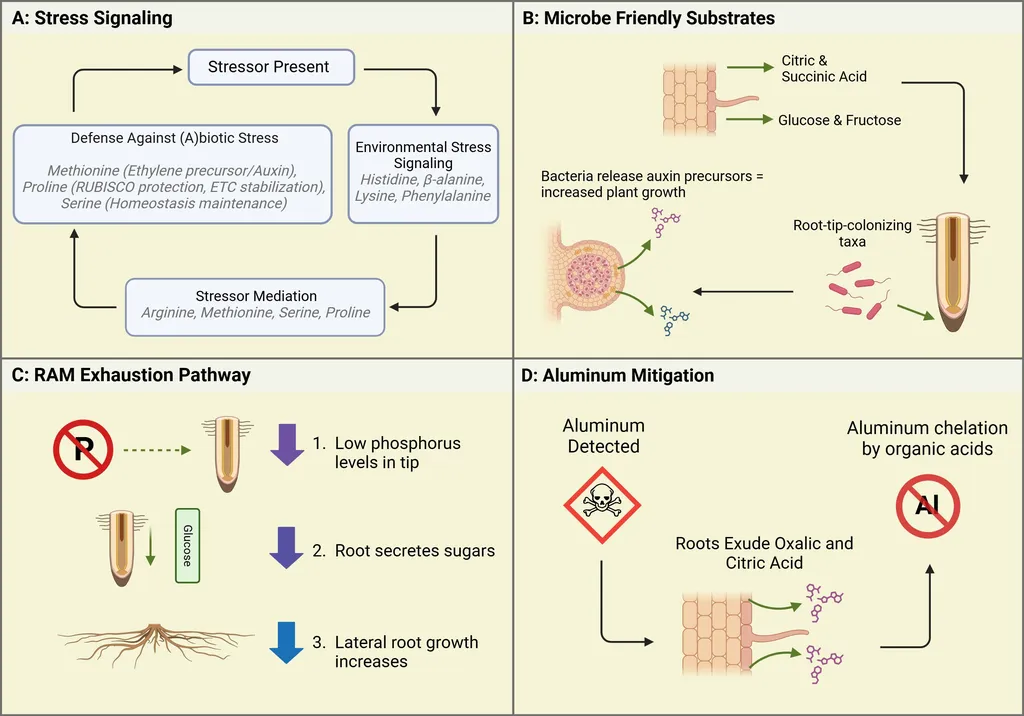In the intricate dance between plants and soil, a new study sheds light on the pivotal role of hormones in regulating root exudates, offering promising avenues for sustainable agriculture. Published in *Plant Signaling & Behavior*, the research led by Hawar Sleman Halshoy from the University of Sulaimani’s Department of Horticulture, delves into the mechanisms by which plant hormones influence the secretion of root exudates, which are crucial for nutrient acquisition, soil health, and plant resilience.
Root exudates are a complex cocktail of primary and secondary metabolites, including sugars, amino acids, organic acids, flavonoids, and signaling molecules. These compounds mediate plant-soil interactions, shaping microbial communities and enhancing plant health. The study highlights how hormones such as auxins, cytokinins, gibberellins, abscisic acid, ethylene, jasmonates, salicylic acid, brassinosteroids, and strigolactones orchestrate the composition and secretion of these exudates.
“Understanding how hormones regulate root exudation is key to unlocking new strategies for sustainable agriculture,” says Halshoy. The research emphasizes the importance of hormone signaling pathways and their crosstalk in modulating exudate profiles, particularly under stress conditions. For instance, defense-related exudation can be triggered by biotic and abiotic stressors, promoting beneficial microbial associations and enhancing nutrient mobilization.
The implications for the agriculture sector are substantial. By harnessing the power of hormone-regulated exudation, farmers could improve nutrient uptake, reduce chemical inputs, and enhance crop resilience to environmental stresses. “This research opens up new possibilities for developing crops that are more efficient in nutrient acquisition and better adapted to changing environmental conditions,” Halshoy explains.
The study also identifies key knowledge gaps, particularly the need for more integrated research that combines controlled studies with field-based complexity. Emerging tools, such as hormone-responsive biosensors and metabolomics, could play a crucial role in advancing our understanding and application of these findings in agricultural settings.
As the global demand for sustainable and efficient agricultural practices grows, this research provides a foundation for innovative approaches that could revolutionize how we cultivate crops. By leveraging the natural mechanisms of hormone-regulated root exudation, the agriculture sector can move towards more resilient and productive farming systems, ultimately benefiting both the environment and food security.

